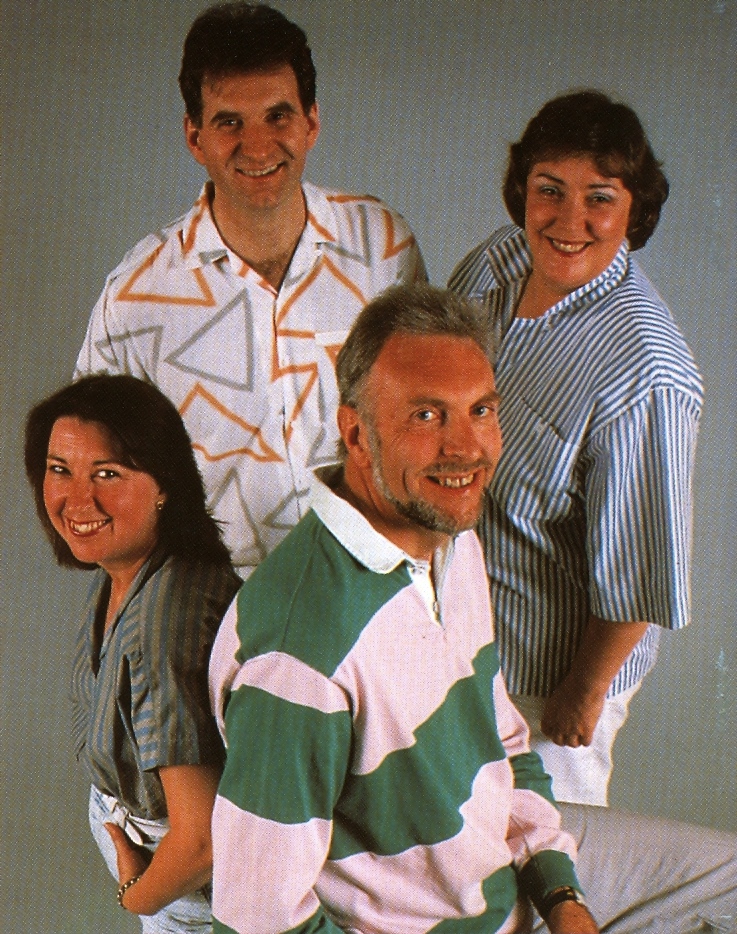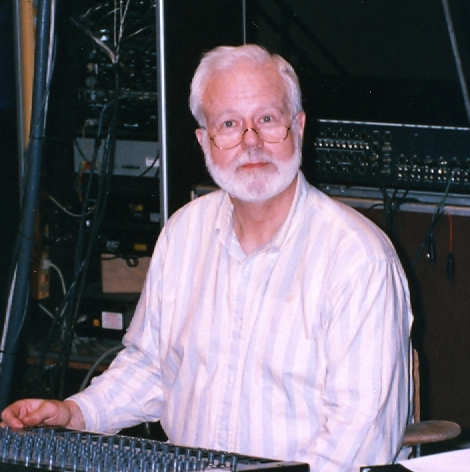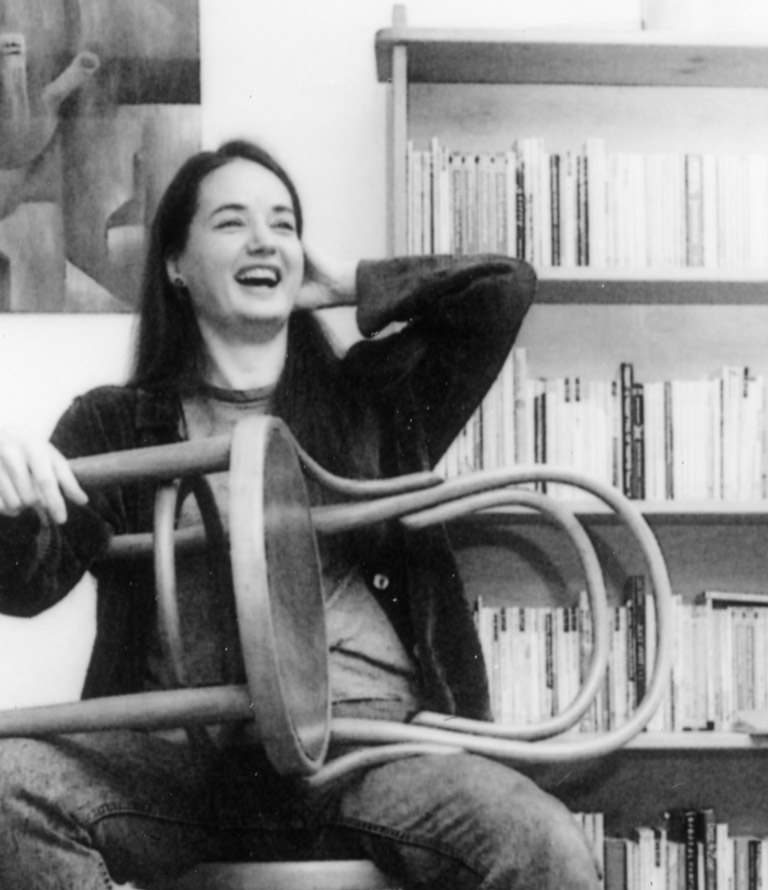
Daryl Runswick
Four by Five
Electric Phoenix
to Electric Phoenix website
back to DR's EP page
[Home]

Daryl Runswick |
to Electric Phoenix website
|
|
archyisms 35-46 I wrote this, my second extended work for Electric Phoenix, in 1990-1. The title Four by Five refers to four pieces performed by the five members of the group. In 1993 I revised Piece for the Wicked for CD recording. Today I'm not at all sure about the superiority of the revision, and I include here both the previously unissued original (recorded live in Germany) and the revised version. Electric Phoenix performed The Unfamiliar Name at Terry Edwards and Judith Rees's wedding. The big hit of the suite was surely archyisms 35-46, a piece of virtuoso comedy which had repeated airings in our concerts. As for BLISS, Jo Shapcott, the writer of the text, told me I'd found things in her poem she didn't know were there. Electric Phoenix on these recordings are Judith Rees, soprano, Meriel Dickinson, mezzo, Daryl Runswick, tenor, Terry Edwards, bass, and John Whiting, speaker and sound projectionist. |
 |
|
archyisms 35-46
The sequence starts with comedy. Archy is a cockroach, the creation of the American humorist Don Marquis in his book Archy and Mehitabel. (Mehitabel is a cat). Archy comes out of the woodwork – literally – every night and writes stream-of-consciousness poems on an office typewriter by head-butting the keys. The poems are written entirely in lower case, rather like those of Archy's contemporary e.e.cummings, but for a different reason: obviously a cockroach cannot hold down the shift key and do head-buts at the same time. The piece describes in Archy's words the imagined 'thoughts' of a swiss cheese. The poem is spoken by John Whiting, strictly one line at a time, to gibberish accompaniment in the voices. The recitations are preceded and interrupted five or six times by pre-recorded blurts in various styles. archyisms 35-46 is dedicated to John Whiting.
Piece for the Wicked (original version)
My original intention with Piece for the Wicked was to make a randomised and almost completely improvised piece. To this end I provided backings, five in all, which John Whiting was instructed to send to the singers in a different order every time: in other words, we'd be standing onstage not knowing which backing would come next. Hearing the backing that did arrive, we'd turn to the appropriate page in the score and begin. It worked very well, and kept us on our toes. The texts are by Kerry Lee Crabbe and treat of relationship breakdown.
Piece for the Wicked (revised version)
In the revised Piece for the Wicked I reduced the amount of improvisation severely and introduced 'characters', one to be played by each singer. Terry was Mr Collins from Pride and Prejudice, and used Jane Austen's text. I was Shakespeare's Richard III wooing Lady Anne. Meriel played the biblical Delilah, and Judy retained Kerry Lee Crabbe's rather misandrist unnamed female. The backings remained the same, but I reduced them from five to four and composed some bridging passages.
BLISS
The text of BLISS, for voices with backing, is a long poem by Jo Shapcott called Phrase Book, from her volume of the same name. Its starting point is a TV documentary about the time of the first Gulf War in 1991, in which pilots were instructed in techniques for evading enemy radar. B.L.I.S.S., as the poem discloses, is a rather sinister acronym for these techniques. Shapcott juxtaposes three separate ideas and has them interact together: the language of high-tech war, that of lovers (where the same words have very different connotations) and of the phrase books which might be resorted to, to try to translate the one language into the other. We come away with the impression that the word bliss is hardly appropriate in either context. Much of BLISS is composed, but a significant amount, including the long final section ('I do not know the word for it yet...') is improvised.
The Unfamiliar Name
The Unfamiliar Name forms the final part of Four by Five, bringing the sequence to a reflective and conciliatory end. It is a setting of a poem of George Herbert (1593-1633) and represents an extended metaphor on Christ's atonement for our sins. Although the symbolism is christian, the beauty of Herbert's treatment of the theme of redemption renders it, I hope, universal. This short setting is for two unaccompanied groups of voices, both groups performed by Electric Phoenix, one soli, one chorally. The piece's title comes from another christian poet, T S Eliot: Who then devised the torment? Love. |

John Whiting
Don Marquis self-portrait
Piece for the Wicked, first version, score page
Piece for the Wicked, second version, score page 
Jo Shapcott at about the time of Phrase Book
|
Except Piece for the Wicked (original version) these are the recordings from the CD The Voice Theatre of Daryl Runswick.
Recorded at October Sound, London, by John Whiting, January 1994.
Produced by Daryl Runswick. Mixed by Daryl Runswick at The DReam Room, London, April/May 1994.
Piece for the Wicked (original version) recorded live at the Frankfurtur Sonoptikum, 9th september 1990.
These recordings are covered by copyright